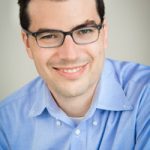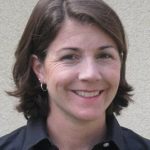Hurricane Florence advances: lessons from Puerto Rico
As North Carolina and South Carolina endure Hurricane Florence, Puerto Rico marks the one-year anniversary of Hurricane Maria. President Trump called the FEMA response to Puerto Rico “an unsung success” and dismissed findings that nearly 3,000 people died as a result of the hurricane. USC experts are available to talk about disaster preparedness, the role of climate change in worsening storms, and Hurricane Maria’s devastating effect on Puerto Rico.
Contact: Jenesse Miller, (213) 810-8554 or Gilien Silsby, (213) 500-8673
Two hurricanes, two different responses

“The United States is suffering the landfall of Florence nearly a year to the day after Hurricane Maria slammed into Puerto Rico, causing the deaths of nearly 3,000 American citizens.
“The people of Puerto Rico are second-class citizens. They have no vote at the federal level and so lack the political clout to secure federal responsiveness. The dying in Puerto Rico was an extended failure of federal disaster preparation and relief. The president has focused on hiding rather than mitigating the island’s devastation. That tactic simply won’t work with voters in Florence’s path.”
Sam Erman is an associate professor at the USC Gould School of Law and the author of a forthcoming book, “Almost Citizens: Puerto Rico, the U.S. Constitution, and Empire.”
Contact: serman@law.usc.edu or (734) 717-2642
The role of climate change

“Tropical cyclones like Hurricane Florence exist to evacuate heat from the upper ocean and carry it upward and poleward. Because human emissions of greenhouse gases are trapping more heat in the upper ocean, these storms have grown stronger and more destructive and can dump much more rain over vulnerable areas..
“Florence is the largest, most intense, and most moisture-laden storm in recorded history to make it this far north on the eastern seaboard. Every bit of this is consistent with the well-known physics of these storms, and they send a clear message: act now to curb emissions or else.”
Julien Emile-Geay is an associate professor of earth sciences at the USC Dornsife College of Letters, Arts and Sciences.
Contact: julieneg@usc.edu or (213) 740-2945
Preparing for disaster
 “Unfortunately, we now have confirmation that last year’s hurricanes in Puerto Rico left thousands of older people dead. Governments need to address the problem honestly so we can work to prevent such devastation in coming emergencies.
“Unfortunately, we now have confirmation that last year’s hurricanes in Puerto Rico left thousands of older people dead. Governments need to address the problem honestly so we can work to prevent such devastation in coming emergencies.
“Here in Los Angeles, the city’s Purposeful Aging Initiative added Emergency Preparedness and Resilience as one of its active domains. Additionally, Los Angeles’ Age-Friendly Action Plan spells out steps for preparations and reaching older Angelenos in emergencies.”
Caroline Cicero is an instructional assistant professor of gerontology at the USC Leonard Davis School.
Contact: cicero@usc.edu or (310) 621-5547
Photo: Satellite image from NOAA via Flikr



